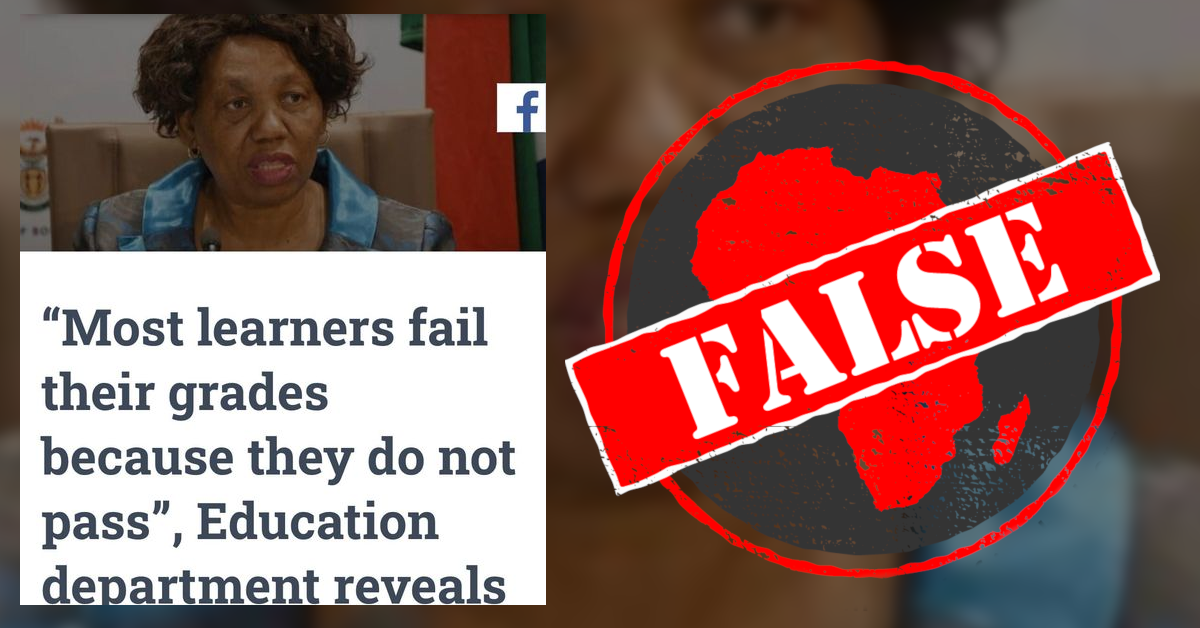“‘Most learners fail their grades because they do not pass’, Education department reveals.” That’s the odd claim in a screenshot posted on the Facebook group page “South Africa Has Fallen” on 23 September 2020.
It shows a photo of Angie Motshekga, South Africa’s national minister of basic education.
The screenshot has been viewed more than 300,000 times in five days, drawing angry reactions. But did Motshekga, or anyone from the education department, actually say this?

The screenshot is of a 17 September Facebook post by the SA Vine, which describes itself as a satirical site, but anything that could identify its origin has been cropped out. The SA Vine’s Facebook page prominently uses the word “satire” on its cover photo and in all its posts. The word does not appear in the screenshot.
The SA Vine website also has a bold disclaimer on its home page: “Dependent. Unreliable. Satire.”
When satire or any attempt at humour is reused as real information, it becomes disinformation. The education department did not say “most learners fail their grades because they do not pass”. – Africa Check
It shows a photo of Angie Motshekga, South Africa’s national minister of basic education.
The screenshot has been viewed more than 300,000 times in five days, drawing angry reactions. But did Motshekga, or anyone from the education department, actually say this?

Dependent. Unreliable. Satire
The screenshot is of a 17 September Facebook post by the SA Vine, which describes itself as a satirical site, but anything that could identify its origin has been cropped out. The SA Vine’s Facebook page prominently uses the word “satire” on its cover photo and in all its posts. The word does not appear in the screenshot.
The SA Vine website also has a bold disclaimer on its home page: “Dependent. Unreliable. Satire.”
When satire or any attempt at humour is reused as real information, it becomes disinformation. The education department did not say “most learners fail their grades because they do not pass”. – Africa Check
Republish our content for free
For publishers: what to do if your post is rated false
A fact-checker has rated your Facebook or Instagram post as “false”, “altered”, “partly false” or “missing context”. This could have serious consequences. What do you do?
Click on our guide for the steps you should follow.
Publishers guideAfrica Check teams up with Facebook
Africa Check is a partner in Meta's third-party fact-checking programme to help stop the spread of false information on social media.
The content we rate as “false” will be downgraded on Facebook and Instagram. This means fewer people will see it.
You can also help identify false information on Facebook. This guide explains how.



Add new comment